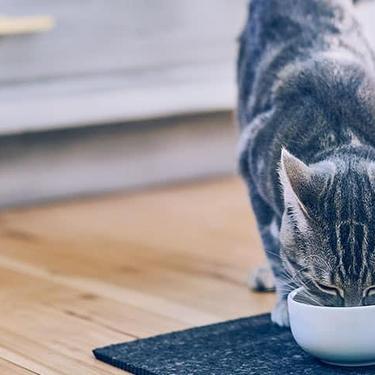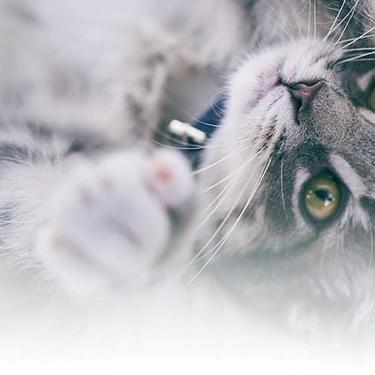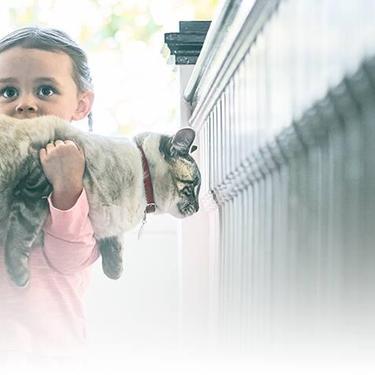
-
Find the right food for your petTake this quiz to see which food may be the best for your furry friend.Find the right food for your petTake this quiz to see which food may be the best for your furry friend.Health CategoryFeatured products
 Adult Light Large Breed Chicken Meal & Barley Recipe Dog Food
Adult Light Large Breed Chicken Meal & Barley Recipe Dog FoodFewer calories for less active large breed dogs
Shop Now Adult Large Breed Chicken & Barley Recipe Dog Food
Adult Large Breed Chicken & Barley Recipe Dog FoodSupports healthy joints, lean muscle, and beautiful coat for large breed dogs
Shop Now Hill's Science Diet Adult Healthy Mobility Large Breed Chicken Meal, Barley & Brown Rice Recipe Dog Food
Hill's Science Diet Adult Healthy Mobility Large Breed Chicken Meal, Barley & Brown Rice Recipe Dog FoodAdvanced nutrition shown to support joint health and improve mobility
Shop NowFeatured products Adult Perfect Digestion Chicken, Barley & Whole Oats Recipe Cat Food
Adult Perfect Digestion Chicken, Barley & Whole Oats Recipe Cat FoodHill's Science Diet's breakthrough nutrition supports ultimate digestive well-being & healthy microbiome
Shop Now Adult Oral Care Chicken & Brown Rice Recipe Cat Food
Adult Oral Care Chicken & Brown Rice Recipe Cat FoodClinically proven kibble technology to reduce plaque & tartar build-up
Shop Now Kitten Healthy Cuisine Tender Chicken & Rice Medley
Kitten Healthy Cuisine Tender Chicken & Rice MedleyDelicious tender chicken and rice in a mouthwatering sauce with precisely balanced nutrition to support 5 essential building blocks for lifelong health
Shop Now -
DogCat
- Cat Tips & Articles
-
Health Category
- Weight
- Skin & Food Sensitivities
- Urinary
- Digestive
- Kidney
- Dental
- Serious Illness
-
Life Stage
- Kitten Nutrition
- Adult Nutrition
Featured articles Cat vs. Dog: Which Is the Best Pet for Me?
Cat vs. Dog: Which Is the Best Pet for Me?Learn about important differences between dogs and cats, such as cost & space considerations. These factors can help you decide which pet is best for you.
Read More Adopting a Pet: What You Need to Know
Adopting a Pet: What You Need to KnowLearn the basics of adopting a pet, including where to begin and common questions you should ask yourself when deciding which kind of pet is best for you.
Read More Fun Ideas for Kids and Pets This Summer
Fun Ideas for Kids and Pets This SummerOutdoor summer activities with your dog or cat can be fun for kids, too. Learn how they also teach kids responsibility & creates a bond with their pet.
Read More -


When you think of cat life stages, you might think that they consist of kittenhood, adulthood and senior age. You might also think that once a cat reaches adulthood, there isn't much difference between cat care in adults and younger cats. If that's the case, you'll be surprised to learn that, according to International CatCare, cats go through six distinct life stages, all of which have their own care and feeding requirements. Keep reading to learn which of the cat life stages your cat falls into, and how you can provide your cat with the best care and nutrition for her age. Please keep in mind that some cats mature quicker than others, so it is important to check with your vet to make sure she is getting the right nutrition as she grows.
Kitten Stage (Zero to Six Months)

A kitten is the cat equivalent of a human infant. Kittens grow and develop much faster than human beings, however. During her first six months of life, a kitten will transition fairly rapidly through stages that are similar to that of a human child — from newborn to toddler to preschooler to big kid.
- Appearance: Kittens are easy to spot. They look exactly like what they are: tiny baby cats. They start out with shortened ears and a tail that grows to be more proportionate with their bodies as they mature.
- Behavior: Kittens are continually learning and discovering the world around them. In the beginning, they're helpless, relying completely on their mother and their human helpers for every aspect of their care and protection. As they grow and develop the skills to explore their environment, they are driven by curiosity. Between that, a lack of fear and an abundance of energy, kittens can be rambunctious and prone to mischief.
- Care and training: Typically, by the time you adopt a kitten, she'll be fully weaned from her mother and eating solid food. She'll also be mobile and quite capable of climbing, jumping, playing and getting into things, and will have yet to learn that some objects and activities are not good for her. Kittens require a lot of patience and supervision. Before getting a kitten, you'll need to kitten-proof your home by blocking off vents and other dangerous places she's small enough to climb or crawl into, putting cords and electrical cables out of reach, moving house plants where she can't get to them, and securing window screens and doggy doors to prevent her from escaping.
In general, kittens should have received their first vaccinations by the time they're old enough to be adopted, but they may be ready for a booster shot around four months of age. Consult your veterinarian to discuss the best time to spay or neuter your kitten. Your veterinarian can discuss these options, as well as her vaccination schedule when you take her for her first wellness exam. Your vet can also help determine the best methods for controlling fleas and other parasites.
Your new kitten will need to be litter box trained, but the concept is both instinctive and something she learns from her mother, so training is mostly a matter of getting her used to the box and gently reminding her to go there by placing her in it when it looks like she needs to go. Otherwise, kitten training mainly focuses on socializing her to people and other animals, and establishing house rules and behavioral boundaries.
- Nutritional needs: Growing kittens need an appropriate amount of protein to support growth and development, without which their growth may be stunted or they may develop health problems. Kittens should be fed a high-quality kitten food that's specially formulated to support their rapidly growing bodies. Kittens can also be fed smaller meals more frequently throughout the day than you would feed an adult cat to keep up with her rapid metabolism. Just remember to adjust her feeding schedule as she grows to avoid any issues with becoming overweight.
Junior Cat Stage (Six Months to Two Years)
The junior life stage is equivalent to human adolescence. During this stage, a cat loses her babyish appearance as she reaches physical and sexual maturity. She also outgrows her kitten personality and settles into her true temperament.
- Appearance: As she transitions out of the kitten life stage, a junior cat sometimes goes through a bit of an awkward stage as she experiences growth spurts that leave her looking long and lanky before she eventually fills out.
- Behavior: This is a transitional cat life stage, during which they should start settling down and growing out of rambunctious kitten behavior and learning to behave more like an adult cat. By the time she reaches about 18 months of age, she'll likely be much calmer.
- Care and training: The vaccination schedule established with your vet should be continued. As your kitty outgrows her kitten behavior and settles into adulthood, she'll need less supervision. Training at this stage is generally about reinforcing rules and boundaries and continued socialization.
- Nutritional needs: At one year of age, it will be time to transition from kitten food to adult cat food. Whether to start feeding her adult kibble or canned (wet) food is really a matter of personal preference. Either way, a standard adult formula should meet all her nutritional needs. It's not uncommon for cats at this stage to put on extra weight after being spayed or neutered, so she'll need to be monitored to make sure she's not being overfed. Your veterinarian should walk you through what to expect after the procedure if you choose to have her neutered.


Tasty Tips
Prime Cat Stage (Three to Six Years)
At this stage, your cat is in the prime of her life — about the equivalent of a human in her twenties and thirties.
- Appearance: A cat at this stage should be at the peak of health and physical fitness. She's as long and tall as she's going to get, and should be filled out but not overweight, with a sleek body and a healthy, shiny coat.
- Behavior: By now your kitty should be fully settled into her natural adult temperament, which varies from cat to cat. Barring the development of any behavior-altering illnesses or disorders, the personality your cat displays now is the personality she'll have for the rest of her life. She should be active and playful, with her routines and her territory well-established.
- Care and training: ;Although in peak health, caring for adult cats in their prime should still involve regular health checkups. By this point, your cat should be fully trained, although she may test boundaries from time to time and need to be gently reminded of the rules. If a cat hasn't outgrown problematic behavior at this stage, you may need to consult a professional trainer for help to correct the behavior, and check with your vet to make sure the undesirable behavior doesn't have an underlying medical cause. If you choose to adopt an adult cat, you can still train her. Cats, unlike dogs, are more independent in nature, so it may seem difficult to train your cat, but it's definitely possible so just be patient with her.
- Nutritional needs: Your cat at this stage can continue eating a standard adult cat food formula, barring any special health considerations that may arise that require a special food.
Mature Cat Stage (Seven to Ten Years)
A mature cat is about the equivalent of a middle-aged human in his or her forties or fifties.

- Appearance: Outwardly, your mature cat might appear no different than a cat in her prime, especially if she remains active. Cats in this life stage are more prone to weight gain and obesity, however, so it's not unusual for her to put on weight, and her coat might begin to lose some of its sheen.
- Behavior: Although some cats remain active and playful well into their senior years, it's not unusual for a mature cat to slow down and become more sedentary.
- Care and training: As with a younger adult cat, you may need to reinforce training from time to time, but not often. Caring for cats at this mature stage is more involved, as they are not only at higher risk of obesity and obesity-related health problems, such as diabetes and high blood pressure, but their risk of cancer and other illnesses like kidney or thyroid disease. She should get regular checkups with the vet and also be closely monitored at home for signs of illness, such as weight loss, unusual vomiting or diarrhea.
- Nutritional needs: Mature cats require an array of nutrients to keep their body in tip-top shape. This includes vitamins C and E to boost her immune system. If she's prone to packing a few extra pounds, you may need to adjust her food to accommodate her activity level.
Senior and Geriatric Cat Stage (Eleven Years and Older)
Cats in their advanced years are separated into two cat life stages. Those from eleven to fourteen years of age are considered senior cats, which is about the equivalent of a human in his sixties and seventies. Ages of fifteen years of age and older are considered geriatric cats.
- Appearance: Senior cats are likely to show signs of aging, such as developing more white in their fur and losing luster in their coats. These features may grow more pronounced as they continue to age.
- Behavior: Cats in these advanced cat life stages are at increased risk to the conditions and illnesses mentioned in the mature stage, and are also prone to mobility issues caused by arthritis or other joint problems. This may cause your cat to slow down considerably, and it may also cause her to stop using the litter box, especially if it has high walls that are hard to climb over or is in a hard-to-reach location. Cats in advanced life stages are also at risk for becoming senile. This may cause them to forget their litter training, and it could also cause them to forget to do things like eat or drink. Cats with dementia often become agitated and may express their agitation with loud yowling, according to the Cornell University College of Veterinary Medicine.
- Care and training: Caring for senior and geriatric cats can be a challenge. Your elderly cat should continue to receive regular health checkups and be closely monitored for health problems. At this stage, the main focus is to keep her comfortable and as healthy as possible for as long as possible. Be sure her litter box is easy for her to get in and out of and that her food and water are easy to get to. If she shows signs of senility, you may need to remind her to eat her food and drink her water throughout the day. Many aging cats go on to live long lives in their senior life stage and can be quite active, but their playtime may just not last as long. The good news is that she may be more willing to cuddle, strengthening your bond even further.
- Nutritional needs: If she develops health problems, your vet may put your kitty on a therapeutic cat food as part of her treatment. Otherwise, a quality senior cat food formula should sufficiently meet all her nutritional needs. If your cat isn't drinking enough water, your vet may recommend switching to moist cat food in order to help her stay hydrated.
As you can see, cats go through a number of changes throughout their lives. By knowing the current life stage of your cat, you'll be able to tailor her care accordingly to help provide her with optimal health, nutrition and quality of life so you two can experience the joys of life together.


Jean Marie Bauhaus is a pet parent, pet blogger, and novelist from Tulsa, Oklahoma, where she usually writes under the supervision of a lapful of fur babies.
Related products

Clinically proven kibble technology to reduce plaque & tartar build-up

Delicious roasted chicken and rice in a mouthwatering sauce

Delicious tender chicken and rice in a mouthwatering sauce with precisely balanced nutrition to support 5 essential building blocks for lifelong health

Hill's Science Diet's breakthrough nutrition supports ultimate digestive well-being & healthy microbiome
Related articles

Understand the symptoms of a chronic upset stomach in your cat, and learn how to help sooth their discomfort.

Get helpful information on proper feline oral healthcare and why it's so vital to take care of your cat's teeth.

Obesity affects more than 30 percent of cats in America. Learn how you can properly feed and exercise your cat to improve its weight management.

Provide the best possible treatment for cats with sensitive skin by spotting the signs, knowing the causes, and understanding the remedies. Learn more now.

Put your cat on a diet without them knowing
Our low calorie formula helps you control your cat's weight. It's packed with high-quality protein for building lean muscles, and made with purposeful ingredients for a flavorful, nutritious meal. Clinically proven antioxidants, Vitamin C+E, help promote a healthy immune system.
Put your cat on a diet without them knowing
Our low calorie formula helps you control your cat's weight. It's packed with high-quality protein for building lean muscles, and made with purposeful ingredients for a flavorful, nutritious meal. Clinically proven antioxidants, Vitamin C+E, help promote a healthy immune system.

